
Rhinitis is the technical term for nasal allergies and hay fever (interestingly, not actually caused by hay or even a fever). It refers to how your body reacts when exposed to allergens in the air.
Rhinitis occurs more frequently during the onset of spring when pollen makes its rounds in the environment. However, some people may experience this at any point in the year.
Rhinitis literally means “inflammation of the nose.” Patients will experience swelling in the nasal cavity and other irritable symptoms.
Absolutely!
We create custom nasal sprays combining antibiotics (like mupirocin), anti-inflammatories (like budesonide), and saline to target resistant infections deep in the sinuses.
Unlike one-size-fits-all options, our sprays penetrate better and avoid irritating preservatives.
For patients unresponsive to standard allergy sprays, compounding allows preservative-free formulations that exclude irritants like benzalkonium chloride.
Ingredients may include antihistamines, corticosteroids, or mast cell stabilizers tailored to individual sensitivities.
Yes.
Sterile saline rinses can be compounded without preservatives and enhanced with xylitol to disrupt biofilms. Budesonide is sometimes added for inflammation.
Preservative-free budesonide rinses are compounded for chronic sinusitis, polyps, or eosinophilic esophagitis.
They deliver localized anti-inflammatory effects directly to mucous membranes, minimizing systemic absorption.
Prescriptions should specify:
Rhinitis can occur for a variety of reasons. These include:
Rhinitis can be bothersome and irritating to experience. Though they may vary for each instance, they generally include:
When the tissue lining in the sinuses becomes swollen or infected. The sinuses will produce excess mucus and lead to congestion and discomfort.
Patients often feel excess pressure in their face, headaches, cough, and fever.
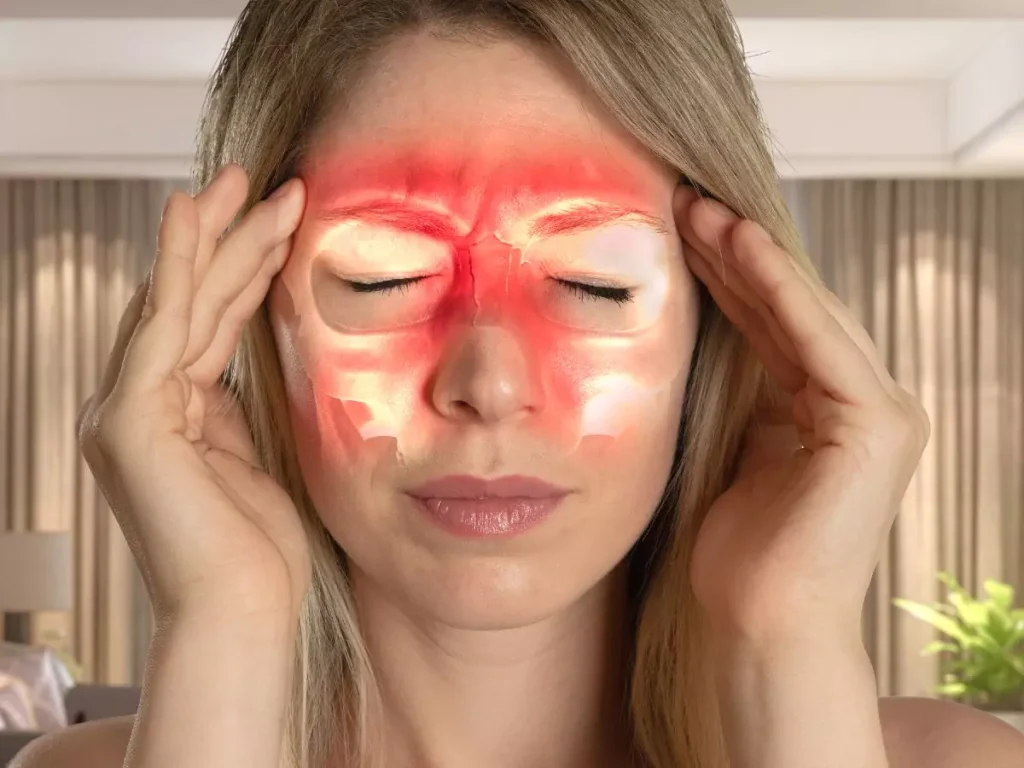
These growths develop in the linking of the nasal passages or sinuses. They are typically teardrop-shaped and grow to be several centimeters large.
They are noncancerous but can cause facial pain, runny nose, decreased sense of taste and smell, and snoring.
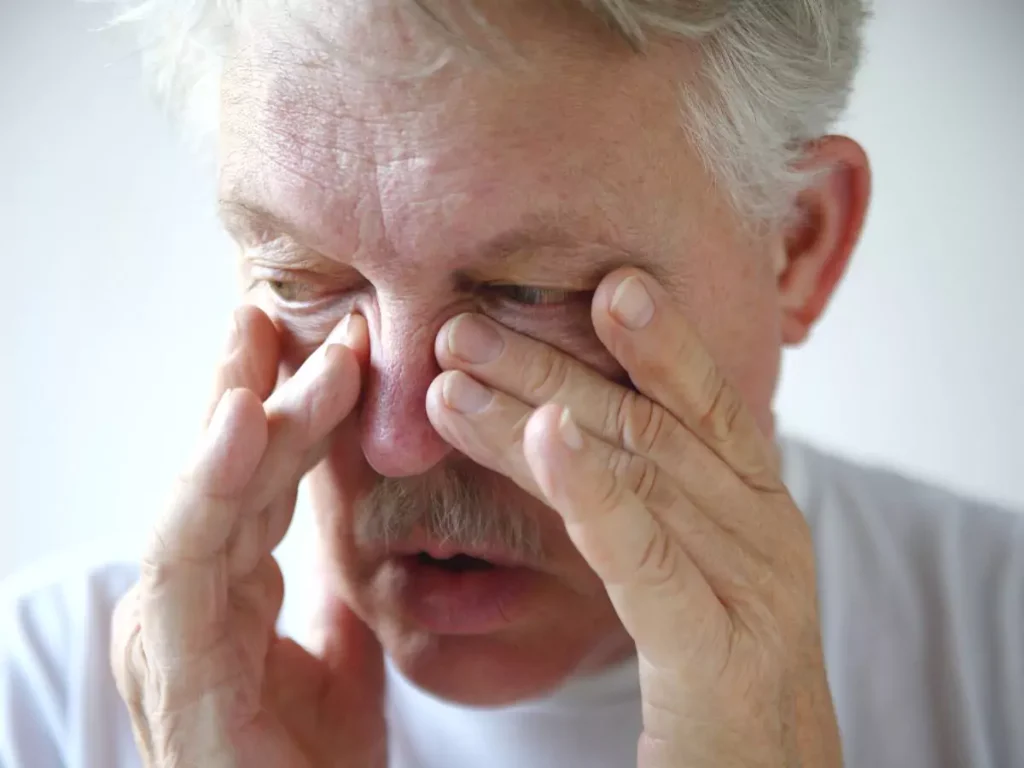
As a compounding pharmacy, this is our personal go-to for rhinitis.
Budesonide is a corticosteroid used in various applications such as inhalers, capsules, and even rectal enemas. Budesonide helps reduce the inflammation and irritation in your nose caused by rhinitis.
It is technically a steroid, but it is not the same as an anabolic steroid. Budesonide is a synthetic copy of what your body produces naturally. It is the active ingredient in the compounded nasal spray or LoxaSperse capsule.
LoxaSperse is a compound base designed explicitly for intranasal applications. By reducing particle size and improving solubility, this base may boost the delivery and absorption of budesonide.
Because the prescription is compounded, we can tailor the medicine to the patient’s specifications, including dosage size, form, and ingredients.
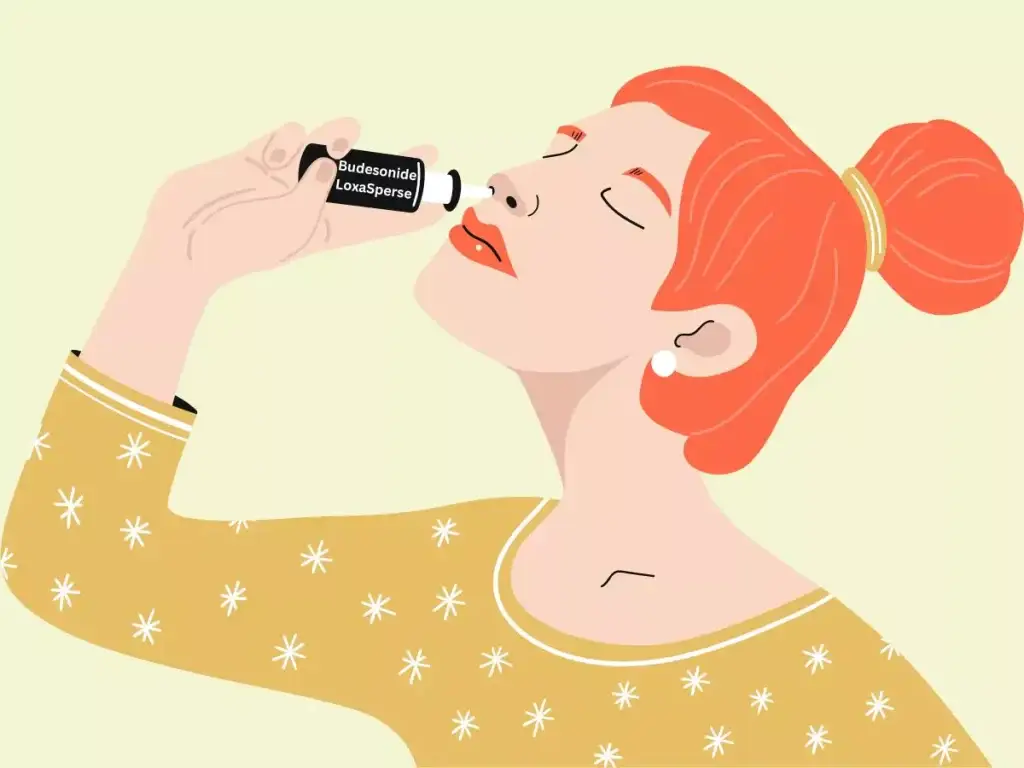
Xylitol is a naturally occurring sugar found in several fruits and vegetables. It is often used as an alternative sweetener for food. Still, many people also use it as a natural remedy for nasal rhinitis.
Xylitol helps reduce inflammation and moisturizes the nasal passages. Additionally, it keeps bacteria from sticking to the surface of your nose, allowing your body to fight off any infection better.
Mixing Xylitol with warm water and using it for nasal irrigation can bring positive results. This can be administered with a sinus rinse or neti pot.
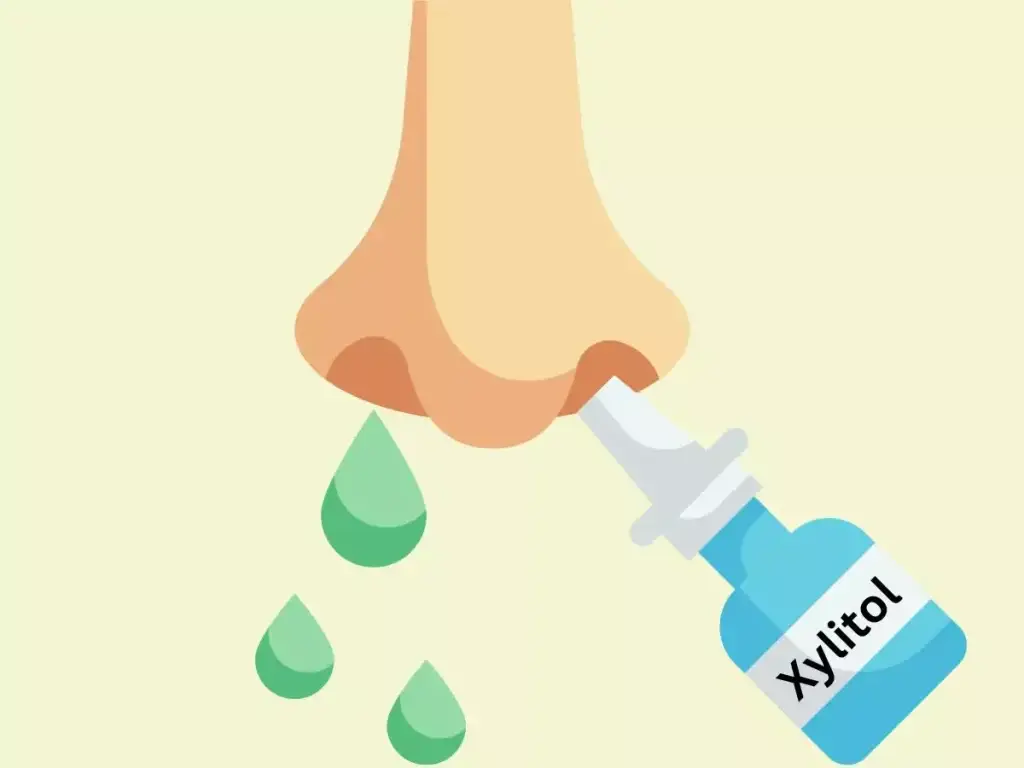
This is probably the most popular and commonly used product for rhinitis. It can be found in almost any grocery store and pharmacy. The saline solution is used to flush out the nasal passages. This helps remove mucus and other irritants contributing to inflammation and congestion.
To use the NeilMed Neti Pot, combine a pre-measured packet of saline solution with warm water in the pot. The added water must be sterile to avoid infection. A common way to do this is to boil water and let it cool.
After creating the solution, tilt your head to the side and pour the solution into one nostril. The solution will flush mucus and debris from your nasal passages and exit the other nostril.
Some might find it gross, others might find it oddly satisfying, but it is a good remedy for rhinitis.
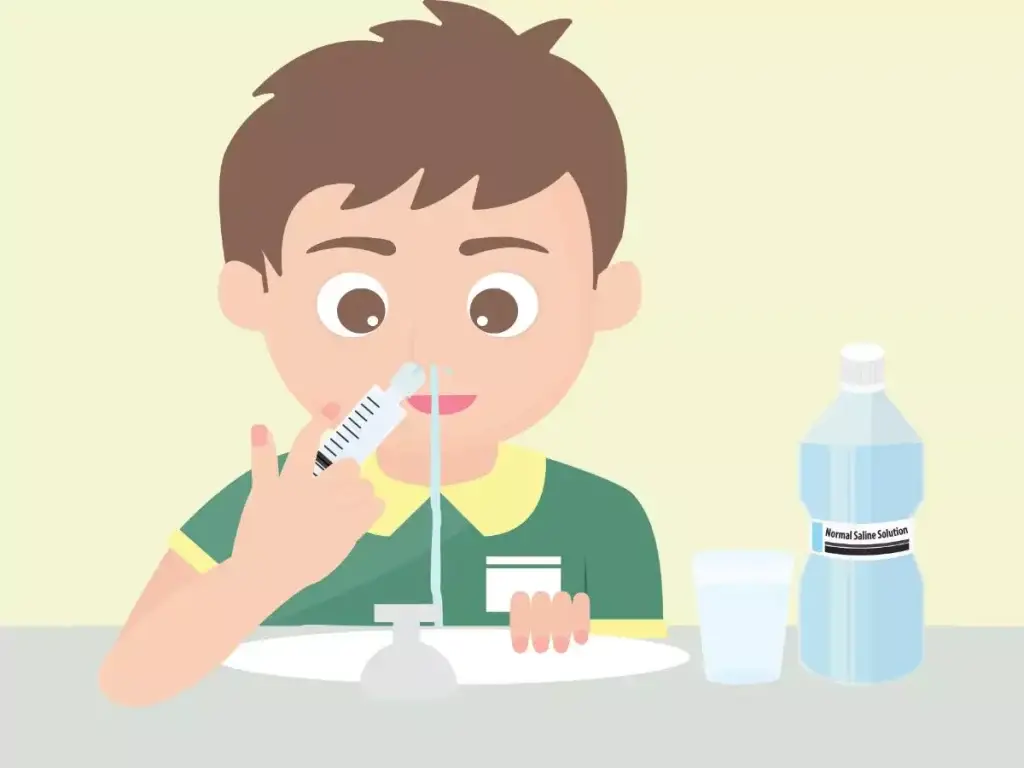
Medication is not always necessary for the rhinitis to go away. In many cases, rhinitis can heal on its own.
Acute rhinitis will last a few days to a week before it resolves itself. Specific remedies, however, can reduce symptoms and shorten the duration.
Chronic rhinitis will often require some form of remedy. This type of rhinitis can be caused by underlying medical conditions or frequent exposure to rhinitis-inducing elements.
In this case, clients may want to administer therapy to avoid infection or worsening symptoms.
Monday – Friday: 10 am to 6 pm
Saturday: 10 am to 2 pm
Sunday: Closed
Monday – Friday: 9 am to 6 pm
Saturday: 9 am to 1 pm
Sunday: Closed
Call/Text: (303) 795-4300
Fax: (303) 795-5849
Monday – Friday: 8 am to 5 pm
Saturday & Sunday: Closed
DISCLAIMER: A prescription from a licensed practitioner is required for compounded medications.
The content and photographs on this website are copyrighted or licensed material and may not be downloaded for other than personal use. Retransmission, republication, reproduction, or any other use of the content or photographs is prohibited.
©ClearSpring Pharmacy
Website Development by Storey Marketing